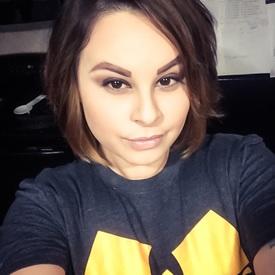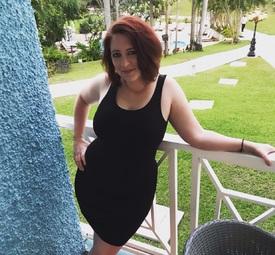Eating clean and butter
Replies
-
If the only ingredient is cream then butter is not processed just churned.. If you take cream and put it in your food processor you will get butter too. Is that considered processed?
Feel mean now, sorry. It is, technically, processed but it obviously hasn't been pumped full of crap so should work for people eating clean. And I think the chap above meant store bought butter.
I use lurpak by the way - just use the homemade stuff for showing off.0 -
No butter EvEr!!!! lol
Coconut spread/coconut oil/ Flaxseed oil <~~~~ good fat0 -
In no way did I mean to insult people's butter.
my butter has been insulted and demands an apology :laugh:
seriously. kerrygold butter is DELICIOUS but expensive by me. my husband is trying to eat 'cleaner' - he reads ingredient labels like a madman. which is good, but it's made grocery shopping a bit less fun than it used to be.0 -
I follow a clean eating lifestyle and eat real butter with salt.0
-
Butter - as long as it's organic and clean - is okay in moderation. Healthy fats actually help you to lose weight!
 0
0 -
Organic pature raised butter or ghee is just fine for clean eating, as long as you watch the portions0
-
So, anything i make in my food processor isn't clean? Like, almond butter? That doesn't see right!
I like the thought of making my own butter and didn't realize whey is left over? I've been wanting to read about making my own whey.
I buy and use organic butter, but in very limited quantities. My kiddos like it in their veggies and on our popcorn. I can't imagine life without butter. Coconut oil just doesn't do it sometimes! -Laura0 -
Are you just trying to make fitness more challenging by creating handicaps for yourself?0
-
You can use butter as long as it's real butter - no margarine and no spreadable butter because it contains vegetable oil.
^^ According to Dax Moy anyway which is 100% pure natural foods.0 -
So, anything i make in my food processor isn't clean? Like, almond butter? That doesn't see right!
I like the thought of making my own butter and didn't realize whey is left over? I've been wanting to read about making my own whey.
I buy and use organic butter, but in very limited quantities. My kiddos like it in their veggies and on our popcorn. I can't imagine life without butter. Coconut oil just doesn't do it sometimes! -Laura
Yes, once you've finished 'processing' the butter will be sitting in watery stuff - that's whey and if you use it then it would probably be easier to work out the cals as you'd just enter it on here as cream. (For the butter and the whey, that is) 0
the butter will be sitting in watery stuff - that's whey and if you use it then it would probably be easier to work out the cals as you'd just enter it on here as cream. (For the butter and the whey, that is) 0 -
-
Once, I went to the Cork Butter Museum in Ireland. It was amazing.
Not really applicable to this thread, but I did learn the entire history of Kerrygold. Butter kicks *kitten*.0 -
I LOVE butter too.. Try I can't believe it's not butter spray. The flavor without the guilt!
Yay! Fake *kitten* in a spray bottle!
I DON'T think so.
Here's my "clean eating advice. I wrote it for someone a few days ago, and it's getting some good usage:
Your body has a set of requirements. It needs water, the proper amount of electrolytes, vitamins and minerals, and a level of nutrient that allows it to break down, rebuild, and repair itself. Getting this balance right means being very aware of your body.
It is very important that you eat the right amount of food for your body to maintain itself.
I don't believe in getting my needed nutrients from pills, so this may seem like a radical idea to some: try getting your nutrition from your food. And not just any food either; you want to look for the best stuff, because this is your body you're caring for, and who wouldn't want the best for their body?
Eat more vegetables and fruit. Look for organic brands, or shop from farmers markets. The fresher the better. If you have the time, try growing your own. The quality of home grown vegetables is very noticeable, in flavor and nutrient content.
Buy grass-fed/pasture raised meats, wild caught fish, and free range chicken/eggs. Do not be afraid to eat the fat, and don't leave out the egg yolks: they have the most basic nutrients your body needs. Avoid farmed fish, for they are fed many antibiotics and colorants. Avoid barn-laid, cage-free, and cage eggs, and do not eat grain fed meat or factory raised meat. If feasible, try to locate a farmer or a co-op that can provide you these things.
Buy grass-fed butter, whole, UN-homogenized milk (or raw if you can get it), use clean animal fats (pork lard, duck fat, beef or lamb tallow) or cold-pressed coconut oil for cooking, and extra virgin olive oil for cold dishes. Do not use hydrogenated oils, margarine, blended butters, vegetable oil, or anything with trans fats. Do not use milk powders, or drink ultra-pasteurized or UHT milks (they are over cooked, with damaged proteins and fats, and are from much lower quality milk overall). Do not drink skim milk: there is hardly anything useful left in it for you, and they use titanium dioxide to make it white (without the pigment, the skim milk would be bluish in color).
Enjoy nuts, seeds, avocados, naturally fermented foods (such as sauerkraut, beet kvass, kimchi, etc) to encourage good gut bacteria. Use home made yogurt and kefir. Use raw honey and pure maple syrup.
Try to avoid things with ingredients lists. Avoid refined sugar and flours, and anything that says "enriched", "fortified", "with _____ added", anything insisting it's "healthy", "low fat", "no fat", "low carb", "low sugar", "sugar-free", "lean" or "skinny". Avoid the majority of wheat, avoid soy at all costs, avoid corn (aside, perhaps, from a bit of fresh, organic sweet corn) and all of it's derivatives. (Cutting out processed foods, breads, etc will help knock a lot of these out of the game.) Avoid soda pop and most juices.
Remove all GMOs from your diet. They raise the risk of cancer and food allergies, are soaked with pesticides and herbicides, they destroy the environment, plant and animal life, and are run by morally corrupt companies who have their fingers in many pies.
Get plenty of sunshine. If you live in a place with a short winter day (as I do) you may use fermented cod liver oil to supplement yourself until summer rolls around. You need the Vitamin D. (If you want to know what your Vit D levels look like, they can run a blood test for it.)
Drink plenty of water. It's what allows your body to function at it's best. It helps with the transfer of nutrients, it keeps your blood flowing, and assist in the removal of toxins from your tissues. Don't drink too much on hot days, though, as that may dilute your electrolyte balance. If drinking a lot on hot days, have something with a little sea salt added, like broth, or look up a recipe for a natural electrolyte drink.
Listen to your body. Are you hungry? Feed it a meal, or a snack. Eat several small meals through the day and keep whole, healthy foods on hand. Cook more meals from scratch. Do you wake up feeling hungry in the middle of the night? You might be thirsty. Keep a glass of water by the bed. Do you feel tired or restless or unsettled during the day? Go for a walk/run to wake your body up and get its cells and fluids moving, and to help aid digestion and sleep. Get at least 6 or 7 hours of sleep at night. Find a hobby that you like doing. Please your mind with reading or craft projects, or gardening.
I like to call this common sense living. If you can do these things, you're well on your way to good health, both physical and mental.
Remember: You are beautiful and so is your body. It doesn't matter what others think. Your body is a finely tuned machine, and it knows exactly what it needs, so do your best to give it the best.0 -
I thought the definition of eating "clean" is, - if the label has any ingredients that were chemically processed or added to it to make it have a longer shelf life - then it isn't "clean"... In other words, if you cannot recognize or buy the ingredients when you look at it, make it yourself, or are more than one step from the original source or farm (cream/milk to butter), then it would be processed.
For instance, Natural Peanut Butter... Label says: peanuts, salt. Period. The fact that someone else mechanically made the peanuts into the peanut butter shouldn't matter, should it?
Personally, I refuse to get wrapped around the axle about whether I'm eating 'clean'. I choose organic when I can but dang! a lot of times that stuff is way more expensive. I mean seriously, one trip to Whole Paycheck,.... sorry, Whole Foods, and one SMALL bag of groceries with fruit, eggs, milk, some staples, and maybe a piece of fish or meat... $50+ bucks? Seriously? I mean, how could anyone (other than people making SERIOUS money- 6 figure type) afford to eat that way?
For me, Clean is something to try your best to do but is it always realistic? No.0 -
Here's the recipe for "a better butter". Take one cup (1/2 pound) of softened organic butter and mix it with 3/4 cup olive oil and 1/4 cup coconut oil. (Add salt to taste.) Pop it in the frig and it stays spreadable---right out of the frig. You get the goodness of butter (and there are many compounds in it like butyric acid and K2, in addition to CLA that just can't be gotten in margarine. (And you don't get chemicals.) You also get the goodness of olive oil and the MCT of coconut oil. And it tastes great!0
-
I thought the definition of eating "clean" is, - if the label has any ingredients that were chemically processed or added to it to make it have a longer shelf life - then it isn't "clean"... In other words, if you cannot recognize or buy the ingredients when you look at it, make it yourself, or are more than one step from the original source or farm (cream/milk to butter), then it would be processed.
For instance, Natural Peanut Butter... Label says: peanuts, salt. Period. The fact that someone else mechanically made the peanuts into the peanut butter shouldn't matter, should it?
Personally, I refuse to get wrapped around the axle about whether I'm eating 'clean'. I choose organic when I can but dang! a lot of times that stuff is way more expensive. I mean seriously, one trip to Whole Paycheck,.... sorry, Whole Foods, and one SMALL bag of groceries with fruit, eggs, milk, some staples, and maybe a piece of fish or meat... $50+ bucks? Seriously? I mean, how could anyone (other than people making SERIOUS money- 6 figure type) afford to eat that way?
For me, Clean is something to try your best to do but is it always realistic? No.
Chrisdavey posted an interesting link on the definition of "clean".0 -
Then I think it's fine. Try Kerrygold butter. It's from grass fed cows.clean eating
Kerrygold is impossible to find. Even organic unsalted is fine. I use organic salted.0 -
Butter should be a part of any diet. Life without butter is like life without oxygen.0
-
Butter should be a part of any diet. Life without butter is like life without oxygen.
Yes---two heavily maligned foods are egg yolks (which are incredibly good for you) and butter which is the closest thing to culinary magic. 0
0 -
Butter is processed and therefore not clean
This is actually true. It must suck to have to give up butter. :devil:0 -
I thought the definition of eating "clean" is, - if the label has any ingredients that were chemically processed or added to it to make it have a longer shelf life - then it isn't "clean"... In other words, if you cannot recognize or buy the ingredients when you look at it, make it yourself, or are more than one step from the original source or farm (cream/milk to butter), then it would be processed.
For instance, Natural Peanut Butter... Label says: peanuts, salt. Period. The fact that someone else mechanically made the peanuts into the peanut butter shouldn't matter, should it?
Personally, I refuse to get wrapped around the axle about whether I'm eating 'clean'. I choose organic when I can but dang! a lot of times that stuff is way more expensive. I mean seriously, one trip to Whole Paycheck,.... sorry, Whole Foods, and one SMALL bag of groceries with fruit, eggs, milk, some staples, and maybe a piece of fish or meat... $50+ bucks? Seriously? I mean, how could anyone (other than people making SERIOUS money- 6 figure type) afford to eat that way?
For me, Clean is something to try your best to do but is it always realistic? No.
Technically, peanuts and salt are both chemicals. And it's a process. So, yeah, even if you make your own, it's technically chemically processed, which is why the term "clean food" is just kinda silly.0 -
I thought the definition of eating "clean" is, - if the label has any ingredients that were chemically processed or added to it to make it have a longer shelf life - then it isn't "clean"... In other words, if you cannot recognize or buy the ingredients when you look at it, make it yourself, or are more than one step from the original source or farm (cream/milk to butter), then it would be processed.
For instance, Natural Peanut Butter... Label says: peanuts, salt. Period. The fact that someone else mechanically made the peanuts into the peanut butter shouldn't matter, should it?
Personally, I refuse to get wrapped around the axle about whether I'm eating 'clean'. I choose organic when I can but dang! a lot of times that stuff is way more expensive. I mean seriously, one trip to Whole Paycheck,.... sorry, Whole Foods, and one SMALL bag of groceries with fruit, eggs, milk, some staples, and maybe a piece of fish or meat... $50+ bucks? Seriously? I mean, how could anyone (other than people making SERIOUS money- 6 figure type) afford to eat that way?
For me, Clean is something to try your best to do but is it always realistic? No.
Technically, peanuts and salt are both chemicals. And it's a process. So, yeah, even if you make your own, it's technically chemically processed, which is why the term "clean food" is just kinda silly.
:happy:0 -
I thought the definition of eating "clean" is, - if the label has any ingredients that were chemically processed or added to it to make it have a longer shelf life - then it isn't "clean"... In other words, if you cannot recognize or buy the ingredients when you look at it, make it yourself, or are more than one step from the original source or farm (cream/milk to butter), then it would be processed.
For instance, Natural Peanut Butter... Label says: peanuts, salt. Period. The fact that someone else mechanically made the peanuts into the peanut butter shouldn't matter, should it?
Personally, I refuse to get wrapped around the axle about whether I'm eating 'clean'. I choose organic when I can but dang! a lot of times that stuff is way more expensive. I mean seriously, one trip to Whole Paycheck,.... sorry, Whole Foods, and one SMALL bag of groceries with fruit, eggs, milk, some staples, and maybe a piece of fish or meat... $50+ bucks? Seriously? I mean, how could anyone (other than people making SERIOUS money- 6 figure type) afford to eat that way?
For me, Clean is something to try your best to do but is it always realistic? No.
Technically, peanuts and salt are both chemicals. And it's a process. So, yeah, even if you make your own, it's technically chemically processed, which is why the term "clean food" is just kinda silly.
:flowerforyou: :flowerforyou: :flowerforyou:0 -
coconut oil is a good substitute flavor wise if you want to stop having butter.0
-
Technically, peanuts and salt are both chemicals. And it's a process. So, yeah, even if you make your own, it's technically chemically processed, which is why the term "clean food" is just kinda silly.
:flowerforyou: :flowerforyou: :flowerforyou:
See I couldn't decide if I should do the smiley, flower or cup. I'm thinking I should have went with the flower now.0 -
Technically, peanuts and salt are both chemicals. And it's a process. So, yeah, even if you make your own, it's technically chemically processed, which is why the term "clean food" is just kinda silly.
:flowerforyou: :flowerforyou: :flowerforyou:
See I couldn't decide if I should do the smiley, flower or cup. I'm thinking I should have sent with the flower now.
Beat ya to it!

 hehehe :glasses: :flowerforyou: 0
hehehe :glasses: :flowerforyou: 0 -
Then I think it's fine. Try Kerrygold butter. It's from grass fed cows.clean eating
I believe this is fine on Primal (Paleo w/dairy) eating.0 -
Then I think it's fine. Try Kerrygold butter. It's from grass fed cows.clean eating
^^^ Agreed (I don't use Kerrygold, but I do make sure I use organic and grass fed--it's also super easy to make your own butter).0 -
Then I think it's fine. Try Kerrygold butter. It's from grass fed cows.clean eating
^^^ Agreed (I don't use Kerrygold, but I do make sure I use organic and grass fed--it's also super easy to make your own butter).
Exactly what I was going to say. Its really easy to make your own...And SOOOO yummy! 0
0 -
Here is a fun way to make butter with young children.
Into a clean pint mason jar drop in 1 or 2 cleaned smooth beach stones or marbles. Pour in 1c of fresh cream (old cream will not churn). This leaves plenty of space in the jar for shaking--but secure the lid first. During story time pass the jar around each child shaking and shaking (this will take about 20 or so minutes). For the longest time, it appears that nothing is happening. Then it seems that the viscosity of the cream is less. Soon someone might see yellow specs in white. Then it all begins to happen to quite fast. Foamy. Thick. Separation. You will be tempted to call it butter when the whey first separates from the fat, but chances are it is still a minute or two too soon. Shake some more to get out all the whey--otherwise the butter will begin to smell cheesey in a few days. After you believe you have a chunk of butter. Pour out the whey (maybe using it in pancakes or some other quick bread recipe) and lay the hunk of butter on a board and will a paddle or spatula press the butter to squeeze out any trapped whey. Then put your butter in dish or shape it before serving. You will find that butter from grain or hay (winter) fed cows is pale, but if you get fresh cream in Spring or Summer from grass fed cows, the butter will have soft yellow hue (chlorophyll).0
This discussion has been closed.
Categories
- All Categories
- 1.4M Health, Wellness and Goals
- 398.1K Introduce Yourself
- 44.7K Getting Started
- 261K Health and Weight Loss
- 176.4K Food and Nutrition
- 47.7K Recipes
- 233K Fitness and Exercise
- 462 Sleep, Mindfulness and Overall Wellness
- 6.5K Goal: Maintaining Weight
- 8.7K Goal: Gaining Weight and Body Building
- 153.5K Motivation and Support
- 8.4K Challenges
- 1.4K Debate Club
- 96.5K Chit-Chat
- 2.6K Fun and Games
- 4.8K MyFitnessPal Information
- 18 News and Announcements
- 21 MyFitnessPal Academy
- 1.5K Feature Suggestions and Ideas
- 3.2K MyFitnessPal Tech Support Questions






















